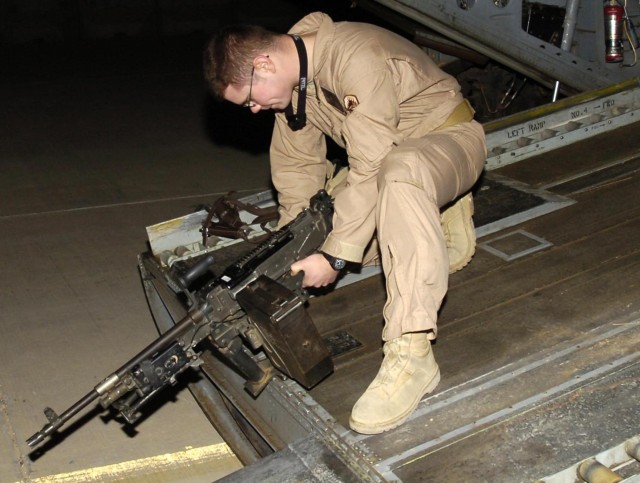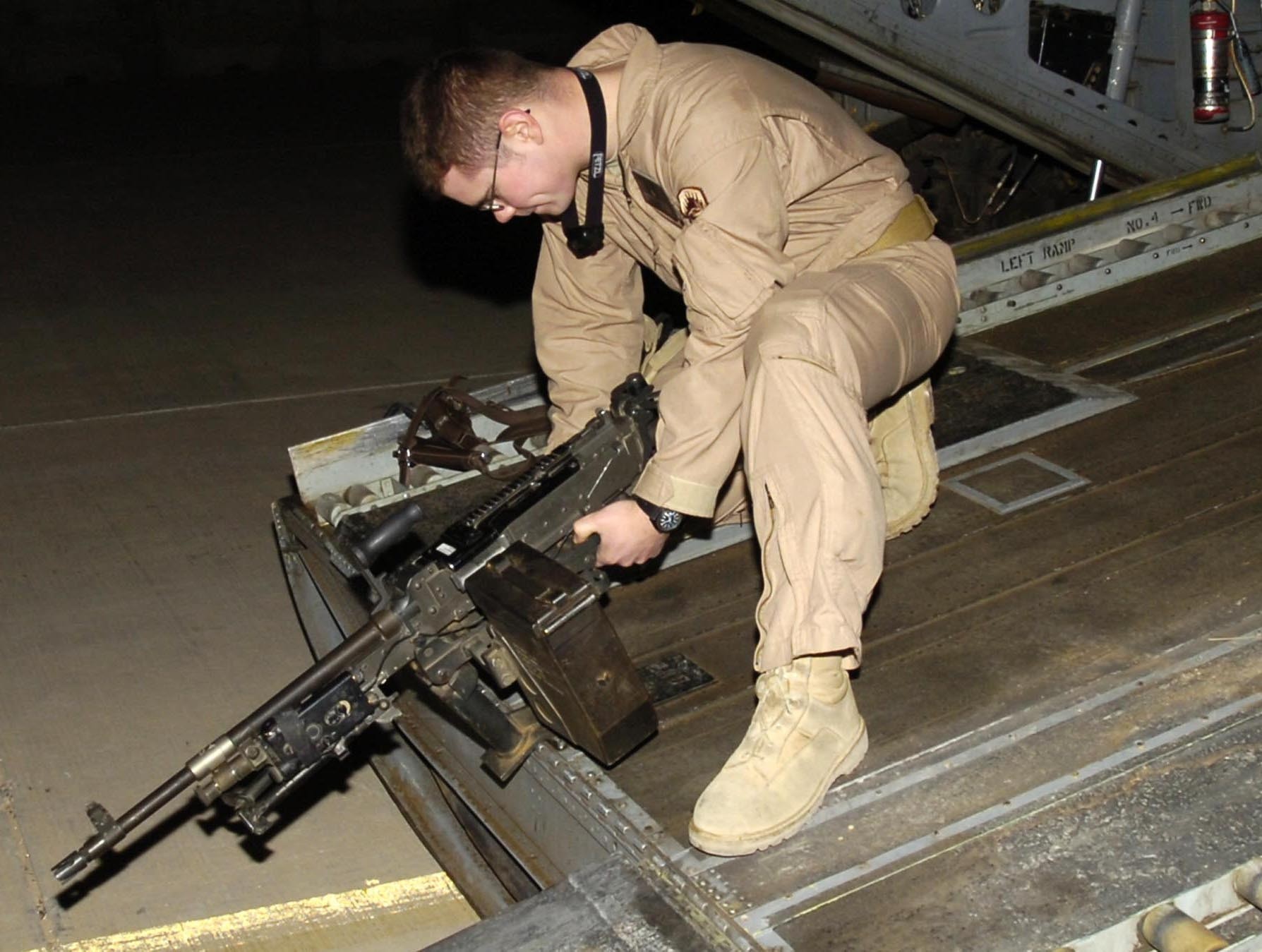LOGISTICAL SUPPORT AREA ANACONDA, Balad, Iraq (Feb. 28, 2008) -- Preparing food and repairing generators weren't close enough to the action for Spc. Cameron Randall and Sgt. Jason Hutchinson. They wanted to fly.
Randall and Hutchinson knew their jobs here in Iraq were important, but they both felt drawn to the job as door gunner on a CH-47 Chinook helicopter. Both Soldiers volunteered for the position, and with the help of their parent units, they got their wish. The pair recently trained as door gunners for Company B, 5th Battalion, 158th Aviation Regiment, a Chinook unit affectionately known as "Big Windy."
Although he had visions of being an Army Ranger, Randall, who is normally assigned to the 412th Aviation Support Battalion, said he promised his father -- a Vietnam veteran and retired sergeant first class -- that he would complete one enlistment as a non-combat Soldier. But once that promise was fulfilled, he added, he wanted a job that would get him off base more and enable him to do something he felt was making more of a contribution.
Most gunners train at home before taking to hostile skies. That was a luxury Randall and Hutchinson would not be able to enjoy. They trained here, in a combat zone.
Chinook crews can do this because gunners on the big tandem rotor aircraft are not also trained as crew chiefs as are gunners on Black Hawk helicopter crews, said Capt. Howard Titzel, the "Big Windy" commander.
A Chinook flight crew consists of two pilots, a flight engineer and a crew chief. This arrangement leaves room for one door gunner, and that's where Hutchinson and Randall come in to play. Training gunners here is based on manpower requirements, said Titzel.
"We only have a certain amount of paid flight positions. Otherwise we'd train as many as we could," Titzel said.
Gunners begin their training on the ground, getting familiar with the M240H machine gun before completing several classes on crew coordination, aviation terminology and rules of engagement.
After those preliminaries gunner candidates finally get to fly and begin engaging practice targets. Once they get familiar with firing the weapon while flying, they get their gear and go on actual missions, under the supervision of a certified crewmember.
The training process is thorough, and new gunners are not allowed to fly solo until a flight instructor is convinced they are ready to take on missions without supervision.
While the Soldiers were well trained before working on their own, Randall says, all the training in the world can't prevent first-flight jitters.
"My first few missions, I was so far off into the realm of the unknown, I didn't know what to feel or think," Randall said. "I was trying too hard to not screw up or to be nervous."
"On my first mission, we were unloading pallets and my foot got tangled up in the cargo webbing, so, as the pallet slid out of the back of the bird, my feet flew out from under me ... but the flight engineer either didn't notice or took it in stride, because nothing was said about it. After that, I stopped worrying about messing up and focused on doing my job. It's been smooth sailing ever since."
Hutchinson, who recently spent three weeks on a support mission in Kuwait, has been extremely impressive in his new role, said Titzel.
"I am very encouraged by his motivation, intellectual curiosity and energy as a door gunner," he said.
Randall and Hutchinson will be attached to "Big Windy" as gunners for the foreseeable future, and both Soldiers say they enjoy what they do.
"It's not just the job I'm attached to, or the excitement," Randall said. "It's the fact that I'm actually good at what I do here and I enjoy it."
"Big Windy" and the 412th are elements of the 12th Combat Aviation Brigade, a U.S. Army Europe unit headquartered in Ansbach, Germany.


Social Sharing